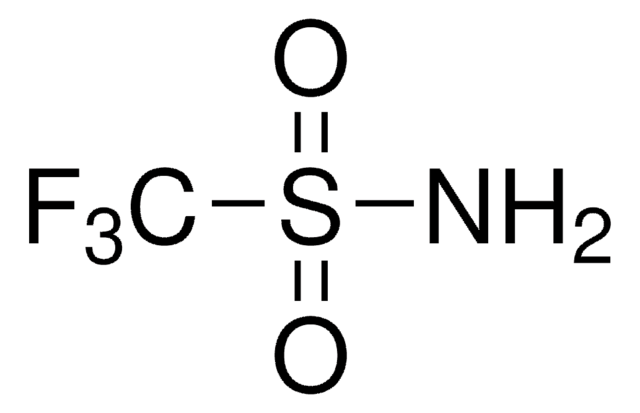464635
Trifluoromethanesulfonimide
≥95.0% (19F-NMR)
Sinónimos:
Bis(trifluoromethanesulfonyl)amine
About This Item
Productos recomendados
assay
≥95.0% (19F-NMR)
form
solid
bp
90-91 °C (lit.)
mp
46-57 °C (lit.)
SMILES string
FC(F)(F)S(=O)(=O)NS(=O)(=O)C(F)(F)F
InChI
1S/C2HF6NO4S2/c3-1(4,5)14(10,11)9-15(12,13)2(6,7)8/h9H
InChI key
ZXMGHDIOOHOAAE-UHFFFAOYSA-N
Categorías relacionadas
General description
Application
signalword
Danger
hcodes
Hazard Classifications
Acute Tox. 3 Oral - Aquatic Chronic 3 - Eye Dam. 1
Storage Class
6.1D - Non-combustible acute toxic Cat.3 / toxic hazardous materials or hazardous materials causing chronic effects
wgk_germany
WGK 3
ppe
Eyeshields, Faceshields, Gloves, type P3 (EN 143) respirator cartridges
Certificados de análisis (COA)
Busque Certificados de análisis (COA) introduciendo el número de lote del producto. Los números de lote se encuentran en la etiqueta del producto después de las palabras «Lot» o «Batch»
¿Ya tiene este producto?
Encuentre la documentación para los productos que ha comprado recientemente en la Biblioteca de documentos.
Los clientes también vieron
Nuestro equipo de científicos tiene experiencia en todas las áreas de investigación: Ciencias de la vida, Ciencia de los materiales, Síntesis química, Cromatografía, Analítica y muchas otras.
Póngase en contacto con el Servicio técnico











